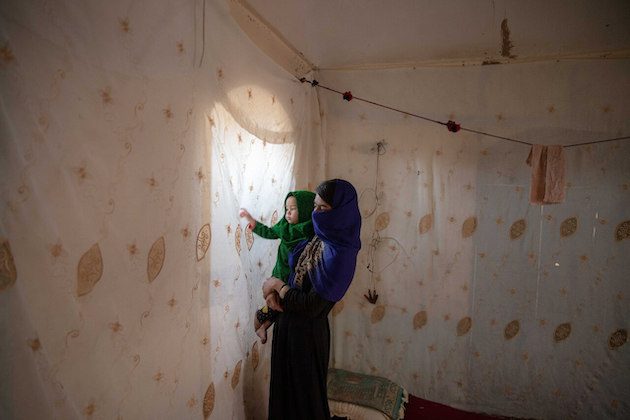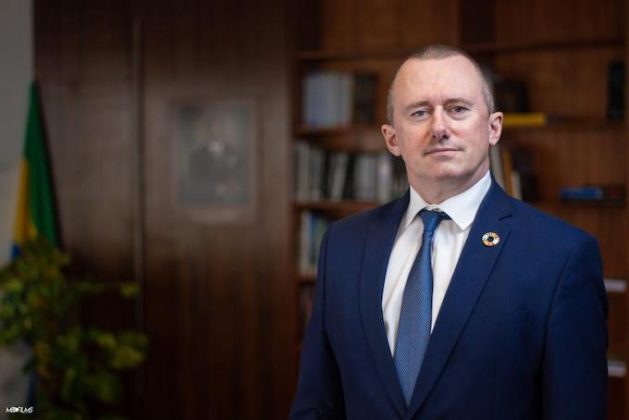As the number of missing Mexicans surges, López Obrador seeks a recount
The effort has prompted a backlash from families of the disappeared and their advocates, who fear that he is trying to lower the numbers artificially before an election year. On Wednesday, the head of the government commission responsible for the official count abruptly resigned “in light of the current context.”
The commissioner, Karla Quintana, gave no details. But in a sign of her alarm, she sent the entire database of missing persons she had overseen to the Inter-American Commission on Human Rights “for safekeeping,” according to an email she wrote that was reviewed by The Washington Post. The registry contains more than 110,000 cases. (Quintana declined an interview request).
Her departure raised questions not only about the future of Mexico’s search for the disappeared, but also about Washington’s investment of tens of millions of dollars in the effort. U.S. officials have called that cooperation a bright spot in a bilateral security relationship that is often strained over the countries’ differing approaches to combating drug trafficking.
“She was a serious and committed person,” said a U.S. official who spoke on the condition of anonymity because he was not authorized to comment. “She was a great spokesman for the work. That moves millions of dollars, in terms of assistance.”
The dispute is the latest in a number of human rights controversies for López Obrador. The longtime leftist took office in 2018 promising to investigate some of Mexico’s darkest secrets, including the mass disappearance of 43 rural college students from the town of Ayotzinapa in 2014, and the “Dirty War” disappearance of hundreds of students and leftist guerrillas starting in the 1960s.
But the agenda has largely collapsed in the face of resistance by the powerful military, the ineptitude of the judicial system and politics.
International experts investigating the Ayotzinapa case left Mexico in frustration in July, protesting what they said was obstruction by the military. Independent members of a government-led truth committee on the Dirty War complained this month that they, too, were being stonewalled by the armed forces. “We feel alone,” said Carlos Pérez Ricart, one of the investigators.
Adding to the pressure has been a procession of grisly new disappearances. On Aug. 14, authorities announced that they had discovered the body parts of at least 13 people in freezers in the eastern state of Veracruz. The next day, a video ricocheted around the internet of a young man slicing another’s neck with a knife, on the orders of his captors. The pair apparently belonged to a group of five youths who had vanished in the western state of Jalisco.
Santiago Aguirre, the director of the Miguel Agustín Pro Juárez Human Rights Center, said the scandals reflected the government’s lackluster performance in security, justice and human rights.
“Faced with this reality, the federal government seems more focused on attacking the perception than taking responsibility for the poor results,” he said.
López Obrador named Quintana, a blunt, Harvard-trained lawyer, to head the National Search Commission in February 2019. The official registry of the disappeared had around 40,000 names at the time, but the information was patchy and poorly organized. Nearly a year later, Quintana presented a revised, updated registry with more than 61,000 cases.
“The registry is the first genuinely professional instrument” for tracking Mexico’s disappeared, Claudio Lomnitz, a Columbia University anthropologist who has contributed research to the commission, said in an interview Thursday.
But as the list grew, it became clear that López Obrador was likely to leave office in 2024 with a record number of disappearances logged in the database.
The president has pushed back, hard.
“These phonies are saying that there are more disappeared now than in Calderón’s term,” he told reporters this week. Felipe Calderón was the president who initiated the offensive against drug cartels in 2006. López Obrador said he was trying to set the record straight. “Now we are searching, and we are finding a lot of people.”
Asked about Quintana’s departure, he said: “Whoever doesn’t agree with a strategy we are carrying out, well, the honest thing is to say: ‘I resign.’”
López Obrador announced in June that he had enlisted state governments and prosecutors as well as federal workers to go door-to-door to families of the disappeared, with the aim of creating a “new census” of the missing.
Well before that, Quintana’s National Search Commission had begun updating its registry, checking databases of electoral registrations, marriage licenses, coronavirus vaccine recipients and other records for people who also were listed as disappeared. The commission often passed such matches to state authorities to confirm. It turned out that thousands of people were still alive or had been identified as dead.
The president’s effort appeared less organized. Some families were aghast that bureaucrats were turning up saying their long-lost relatives had received coronavirus vaccines but providing no further information. Mario César González, an outspoken leader of the parents searching for their sons in the Ayotzinapa case, was startled when a government worker appeared and asked whether his child had returned.
“He was furious,” said Aguirre, the director of the human rights center, who also is a lawyer for the parents of the missing students.
In recent weeks, López Obrador has repeatedly questioned the number of people in the registry. When Quintana balked at the president’s efforts to alter it, she was asked to resign, according to a government official. The official spoke on the condition of anonymity to discuss the politically sensitive matter.
She “feared they would make her change the data,” said a diplomat from a European country that provided funding to the commission, speaking on the condition of anonymity. Three of Quintana’s top deputies have also stepped down.
The U.N. Human Rights Office in Mexico warned that Quintana’s resignation “shouldn’t lead to a regression, or put at risk, what’s been achieved in public policy, institutional design, databases and registries needed to search for people.”
Quintana’s boss Alejandro Encinas, a human rights official in the government, on Friday denied any effort to replace the registry or pressure anyone to “hide a phenomenon like disappearances that is so grave and sensitive for the country.”
López Obrador has defended his commitment to families of the disappeared, pointing out that he has greatly expanded the budget for search efforts. Indeed, on his watch, the commission swelled from a handful of employees to 240. It funded state-level search committees and launched a program to identify the more than 50,000 unclaimed bodies around the country.
Yet, the disappearances continue.
Many analysts blame impunity. The Mexican justice system has solved only a tiny percentage of the cases of the disappeared.
In addition, López Obrador has not been able to prevent criminal groups from asserting control over more and more of the country’s territory. As they have flourished, disappearances have mounted. Now, those disappearing include land rights activists, extortion victims and people kidnapped to perform forced labor.
Even as the registry has been purging people who have been found alive or dead, the overall number of disappeared has hardly budged this year. Cases are constantly being added.
“They take 25 off the list, and almost simultaneously, they get 25 more,” Santiago Corcuera, a former member of the U.N. Committee on Enforced Disappearances, told the Aristegui Noticias radio program.
It is difficult to say whether actual disappearances will hit a record under López Obrador. It is easier to register a missing person today than it was in the past, thanks to Quintana’s commission and the proliferation of mothers groups. So it is likely that more people are reporting such cases. Yet, an unknown number still do not file complaints, often because they fear retaliation from those responsible for the disappearances.
“In my town, there are no less than 100 people who have disappeared,” said María Herrera of Michoacan state and a mother of four missing sons. She helped found a national network of groups searching for the disappeared.
“And do you know how many complaints there are? Only my own,” she said.
Not all disappearances reflect violence by the cartels or the military. The registry includes migrants who vanish while crossing broiling deserts, individuals searching for parents who abandoned them and elderly people with dementia who wander away from home.
Although human rights groups have expressed dismay at Quintana’s departure, she had critics. She clashed with the federal attorney general’s office. Families that form the backbone of the search for the disappeared complained that she did not give them enough resources.
“The truth is, I’m disappointed,” Herrera said. But she aimed her most withering criticism at López Obrador, who has generally declined to meet with the families of the disappeared.
“He always says that he has other numbers,” Herrera said. “But the ones who have the real numbers are us, the mothers. Our families are the ones suffering this tragedy.”
Check out our Latest News and Follow us at Facebook
Original Source







